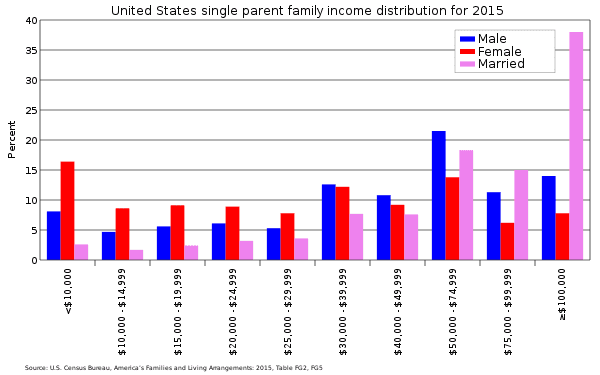Poverty: solo moms most affected
Single-parent families have been steadily increasing since the 1970s. Whatever the cause, the feminization of this new family model is indisputable: nearly 85% of solo families are made up of women.
This phenomenon has an explanation : during a divorce, custody of the child is entrusted to the mother in 77% of cases and in 84% of cases after separation without prior marriage. Whether the situation is chosen or suffered, it is still very difficult to raise a child when you are alone. Single parenthood often goes hand in hand with more difficult living conditions, both from a material and psychological point of view.
In its recent report “Women and precariousness”, the Economic, Social and Environmental Council (CESE) sounded the alarm on the situation of single women. “Of the 8,6 million French people living below the poverty line, 4,7 million are women,” or nearly 55%. he emphasized. Lone mothers are on the front line. “If they represent only 5% of the total population, they are two to three times more numerous among the poor population. According to an Ipsos survey from October 2012, nearly one in two single mothers (45%) say they end the month uncovered and nearly one in five fear falling into le mautonu. 53% of these mothers believe that a lack of money is their main difficulty on a daily basis.
A very fragile professional situation
Solo moms suffer from the exacerbation of the problems faced by women in precarious situations. Their situation is more fragile in terms of employment. Little educated, they are more often unemployed than mothers in a relationship with. And when they are working, most of the time they work in low-skilled or part-time jobs. In addition, the only ones to perform most of the daily tasks, they often experience many difficulties in reconciling work and life, which further weakens their professional situation. Consequence: single parents are the first beneficiaries of social benefits. According to the Economic and Social Council (CESE), women represent 57% of beneficiaries of the Active Solidarity Income (RSA).
The landscape is not so dark. Even though they recognize that their daily life is difficult, mamans alone keep morale up. They claim to be good mothers in the same way as mothers in a couple. 76% of them believe that children raised by a single mother will do as well, or even better than others in life (19%), according to the Ipsos survey. The majority of mothers questioned also said they were just as capable as other mothers of transmitting values to their children. Still, one in three single-parent families live below the poverty line and it is therefore urgent to help these women (in 85% of cases) to get their heads above water.










